Wakatobi Dive Resort is considered by many to be a model of sustainable dive tourism. One explorer heads there to discover if this Indonesian operator in the heart of the Coral Triangle really does live up to the hype.

IT DID CAUSE a bit of a stir. I was a panelist at the Brunei National Environment Conference a few years ago. The panel’s topic was conservation of the oceans and the conference venue, the Empire Hotel, had shark-fin soup on the menu. When the moderator for the panel discussion called for a show of hands to indicate who would support boycotting the soup, I voted against it. In fact, I think I was the only one that did. Given that I’d just made some remarks about my own efforts to promote the conservation of sperm whales, there was some lively reaction from other panel members and some members of the audience. That was understandable. But when the temperature cooled a little, and I was asked to explain, I offered the idea that “Should we boycott shark-fin soup?” was the wrong question.
THE BETTER QUESTION?
To be clear. Shark-finning, and the demand for it by people who inanely and selfishly support it in order to consume tasteless, nutrition-less boiled sinews, is a devastating blight on the oceans. Healthy oceans underpin innumerable economic and biological benefits for the human race, not least the provision of such life-support “conveniences” as atmospheric oxygen. People who buy shark fins and shark-fin soup are effectively undermining all that for the rest of us. So, I have little sympathy for their behaviour.
هذه القصة مأخوذة من طبعة Issue 04 - 2016 من Asian Diver.
ابدأ النسخة التجريبية المجانية من Magzter GOLD لمدة 7 أيام للوصول إلى آلاف القصص المتميزة المنسقة وأكثر من 9,000 مجلة وصحيفة.
بالفعل مشترك ? تسجيل الدخول
هذه القصة مأخوذة من طبعة Issue 04 - 2016 من Asian Diver.
ابدأ النسخة التجريبية المجانية من Magzter GOLD لمدة 7 أيام للوصول إلى آلاف القصص المتميزة المنسقة وأكثر من 9,000 مجلة وصحيفة.
بالفعل مشترك? تسجيل الدخول
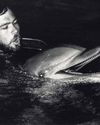
The Sea Specialist: An Interview With Bret Gilliam
Most people learn to crawl before they walk, but there is a man who learned to swim before taking his first steps. Diver, entrepreneur, writer, athlete, maritime specialist – Bret Gilliam is the complete package. Just add water.
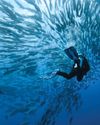
The Best Of Diving In Southeast Asia: Explore The Amazon Of The Seas
Southeast Asia encompasses the world’s most biodiverse reefs and some of the best diving anywhere on the planet. From the tiniest and rarest critters to huge fish schools and the biggest pelagics, the region has it all, and there’s something to suit divers of any level.

Below With David Doubilet & Jennifer Hayes
Best known for their work with National Geographic, David Doubilet and Jennifer Hayes came together to discuss their work with the youth, and, as Jennifer put it, “submerging with the emerging talent”.
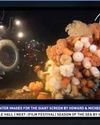
Underwater Images For The Giant Screen
Howard and Michele Hall are best known for their success in underwater IMAX filmmaking.

Journey To Filming For National Geographic Wild Brazil
Cristian is an acclaimed and highly versatile Brazilian wildlife filmmaker who works both underwater and topside.

Breaking The Barrier: The World's Deepest Dive
David Strike shared a brilliant presentation about the history of deep diving and how Lt. George Wookey achieved the world’s deepest dive in 1956 using a surface-supplied rebreather.
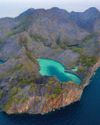
Dive the Golden Land
The Best of Diving In Southeast Asia

OFFICIAL LAUNCH OF BLUE HOPE
Top Session of the Week (14,319 (Views) / 42,831 (Reach)
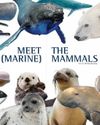
MEET THE (MARINE) MAMMALS
MEET THE (MARINE) MAMMALS

Fashion Faux Pas
What can be done to mitigate the impact of the garment industry on our oceans?